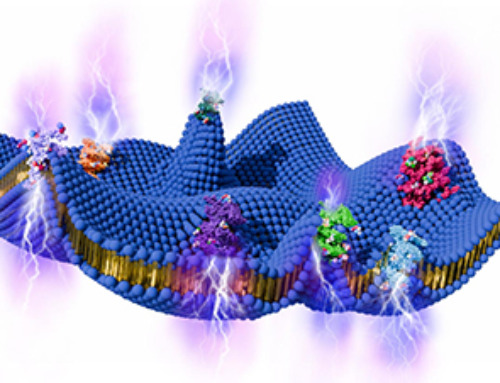When babies in the African countries of Guinea Bissau and Uganda were given the tuberculosis vaccine, something remarkable happened.
Instead of the vaccine only protecting against the target bacteria – Myocbacterium tuberculosis – the tuberculosis vaccine offered broad protection against a range of unrelated infections, including respiratory infections and serious complications such as sepsis.
The team administered the Bacille Calmette-Guérin (BCG) vaccine to 63 infants within ten days of their birth and compared their progress to a control group of 67 infants who did not receive the BCG vaccine.
The researchers took blood samples from the infants and examined circulating white blood cells called monocytes in both groups.
Monocytes are part of the human body’s innate immune system, which provides the first line of defense against pathogens and is not specific to any one disease.
Looking at these monocytes, researchers found distinct epigenetic differences – changes to the way genes are expressed or control which genes are active and which are switched off – between the vaccinated group and the unvaccinated group that lasted on average around 14 months after vaccination.
In vaccinated babies, the BCG vaccine reprogrammed or ‘trained’ monocytes to be more responsive to pathogens in general, and this epigenetic signature was passed down to the next generation of monocytes for more than a year after vaccination.
“For the first time, we have shown how the BCG vaccine can have long-lasting effects on the immune system of infants,” says Boris Novakovic, senior author and molecular biologist at the Murdoch Children’s Research Institute (MCRI) in Melbourne, Australia.
The researchers also used an in vitro experiment to explore these epigenetic changes in detail.
They isolated monocytes from healthy adults and exposed the cells to two types of the BCG vaccine and detected distinct changes in different types of epigenetic modifications.
These included DNA methylation – molecular tags adoring the DNA sequence – and histones – bulky proteins around which DNA strands are wound.
Monocytes respond to pathogens using receptors on the cell’s outside surface.
When these receptors contact a pathogen, it triggers the monocyte cell to ‘eat’ the pathogen (phagocytosis), which also causes a cascade of events inside the cell where one protein switches on another protein and so on, until this triggers a change in the gene expression of the cell.
Putting monocytes on high alert makes them more responsive to all infections, not just tuberculosis.
It was previously thought that the innate immune system had no way of remembering previous infections, unlike the adaptive immune system (which uses T cells and specific antibodies to remember the pathogens it has encountered before).
Over the last decade, scientists have discovered that the innate immune system can actually produce a non-specific memory, called ‘trained immunity’.
“That’s been the breakthrough,” Novakovic told ScienceAlert.
It’s not just the BCG vaccine that makes the innate immune system hyperresponsive. Other live attenuated vaccines that use a weakened form of the virus to protect against diseases such as polio, measles, and smallpox have a similar effect.
Conditions that put stress on the body, such as obesity and high cholesterol, or injuries, also make the innate immune system more responsive. That’s not always a good thing.
In countries where infant mortality is high, vaccinating against tuberculosis, measles, or smallpox may have a beneficial effect in protecting infants against a range of other infections.
In an Australian context where babies rarely die of infectious diseases, there is greater interest in the potential use of the BCG vaccine to prevent allergies and eczema in kids, Novakovic said.
The thinking is that the BCG vaccine may have a beneficial effect on the developing immune system.
A study from MCRI researchers published in Allergy last year found that BCG vaccination had a modest beneficial effect in preventing eczema in infants predisposed to developing the common skin condition.
The epigenetics study was published in Science Advances
News
The Brain’s Strange Way of Computing Could Explain Consciousness
Consciousness may emerge not from code, but from the way living brains physically compute. Discussions about consciousness often stall between two deeply rooted viewpoints. One is computational functionalism, which holds that cognition can be [...]
First breathing ‘lung-on-chip’ developed using genetically identical cells
Researchers at the Francis Crick Institute and AlveoliX have developed the first human lung-on-chip model using stem cells taken from only one person. These chips simulate breathing motions and lung disease in an individual, [...]
Cell Membranes May Act Like Tiny Power Generators
Living cells may generate electricity through the natural motion of their membranes. These fast electrical signals could play a role in how cells communicate and sense their surroundings. Scientists have proposed a new theoretical [...]
This Viral RNA Structure Could Lead to a Universal Antiviral Drug
Researchers identify a shared RNA-protein interaction that could lead to broad-spectrum antiviral treatments for enteroviruses. A new study from the University of Maryland, Baltimore County (UMBC), published in Nature Communications, explains how enteroviruses begin reproducing [...]
New study suggests a way to rejuvenate the immune system
Stimulating the liver to produce some of the signals of the thymus can reverse age-related declines in T-cell populations and enhance response to vaccination. As people age, their immune system function declines. T cell [...]
Nerve Damage Can Disrupt Immunity Across the Entire Body
A single nerve injury can quietly reshape the immune system across the entire body. Preclinical research from McGill University suggests that nerve injuries may lead to long-lasting changes in the immune system, and these [...]
Fake Science Is Growing Faster Than Legitimate Research, New Study Warns
New research reveals organized networks linking paper mills, intermediaries, and compromised academic journals Organized scientific fraud is becoming increasingly common, ranging from fabricated research to the buying and selling of authorship and citations, according [...]
Scientists Unlock a New Way to Hear the Brain’s Hidden Language
Scientists can finally hear the brain’s quietest messages—unlocking the hidden code behind how neurons think, decide, and remember. Scientists have created a new protein that can capture the incoming chemical signals received by brain [...]
Does being infected or vaccinated first influence COVID-19 immunity?
A new study analyzing the immune response to COVID-19 in a Catalan cohort of health workers sheds light on an important question: does it matter whether a person was first infected or first vaccinated? [...]
We May Never Know if AI Is Conscious, Says Cambridge Philosopher
As claims about conscious AI grow louder, a Cambridge philosopher argues that we lack the evidence to know whether machines can truly be conscious, let alone morally significant. A philosopher at the University of [...]
AI Helped Scientists Stop a Virus With One Tiny Change
Using AI, researchers identified one tiny molecular interaction that viruses need to infect cells. Disrupting it stopped the virus before infection could begin. Washington State University scientists have uncovered a method to interfere with a key [...]
Deadly Hospital Fungus May Finally Have a Weakness
A deadly, drug-resistant hospital fungus may finally have a weakness—and scientists think they’ve found it. Researchers have identified a genetic process that could open the door to new treatments for a dangerous fungal infection [...]
Fever-Proof Bird Flu Variant Could Fuel the Next Pandemic
Bird flu viruses present a significant risk to humans because they can continue replicating at temperatures higher than a typical fever. Fever is one of the body’s main tools for slowing or stopping viral [...]
What could the future of nanoscience look like?
Society has a lot to thank for nanoscience. From improved health monitoring to reducing the size of electronics, scientists’ ability to delve deeper and better understand chemistry at the nanoscale has opened up numerous [...]
Scientists Melt Cancer’s Hidden “Power Hubs” and Stop Tumor Growth
Researchers discovered that in a rare kidney cancer, RNA builds droplet-like hubs that act as growth control centers inside tumor cells. By engineering a molecular switch to dissolve these hubs, they were able to halt cancer [...]
Platelet-inspired nanoparticles could improve treatment of inflammatory diseases
Scientists have developed platelet-inspired nanoparticles that deliver anti-inflammatory drugs directly to brain-computer interface implants, doubling their effectiveness. Scientists have found a way to improve the performance of brain-computer interface (BCI) electrodes by delivering anti-inflammatory drugs directly [...]





















